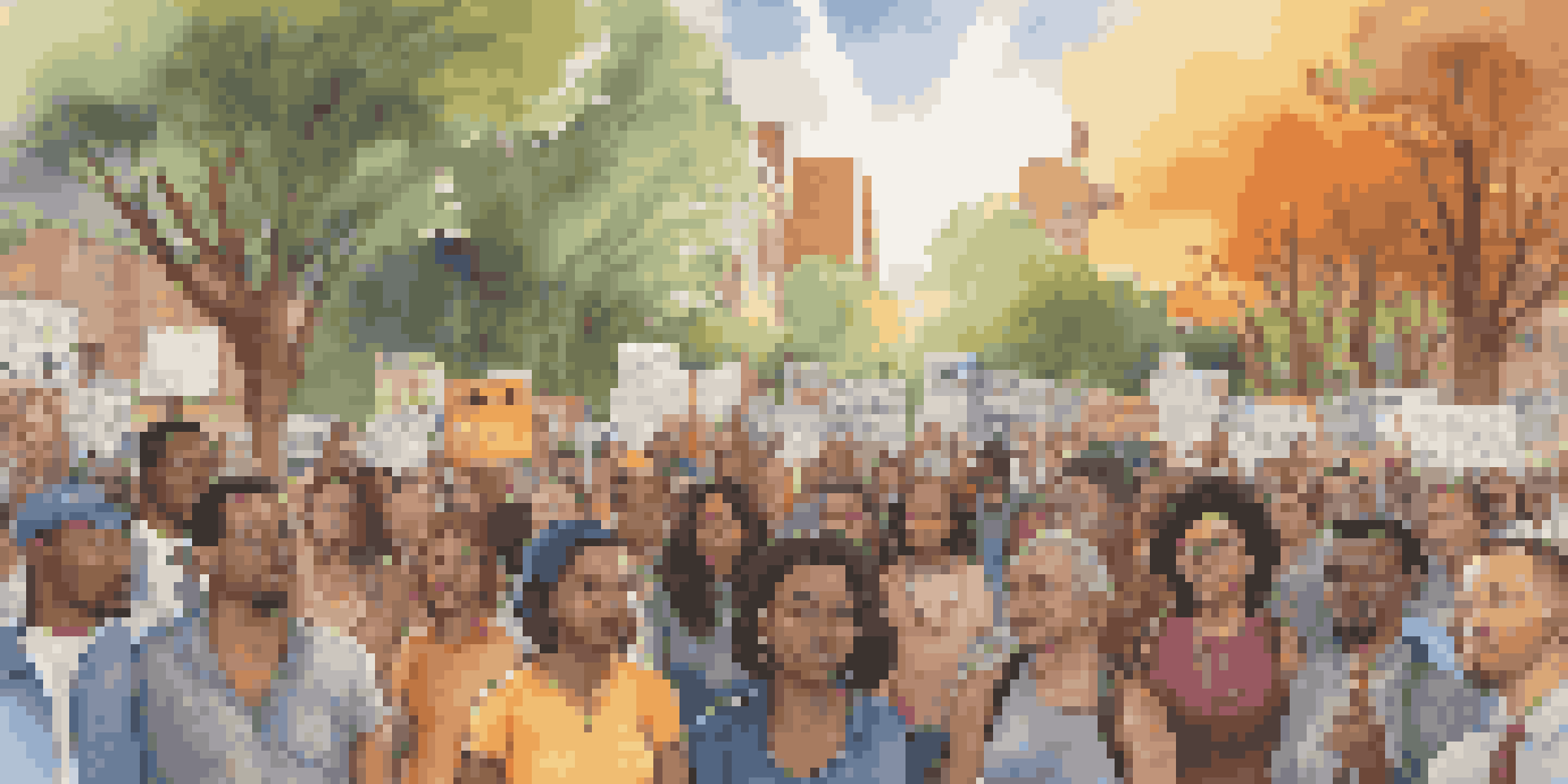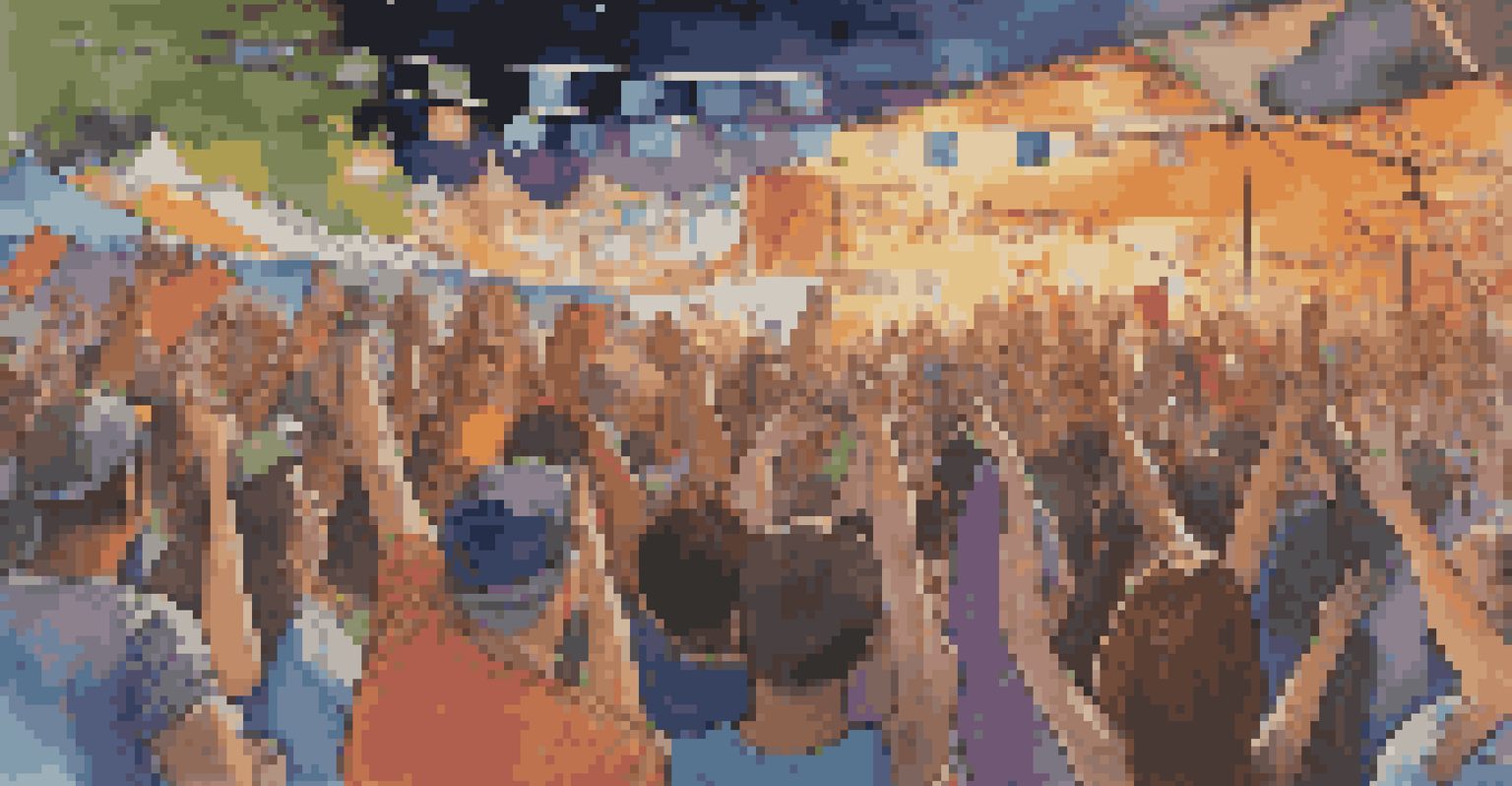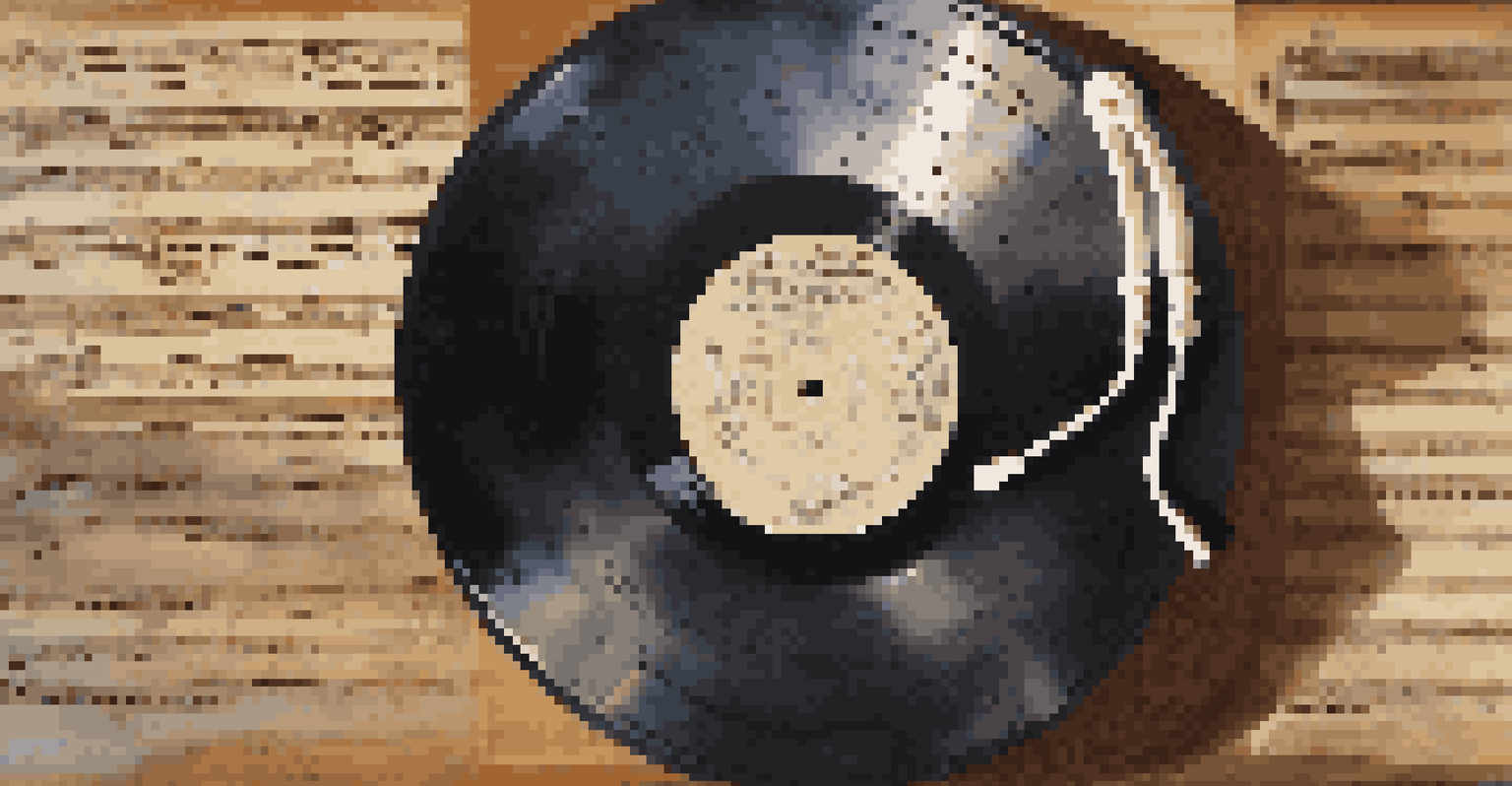The Influence of Music on Political Identity and Activism

Music as a Reflection of Political Identity
Music often serves as a mirror to the political landscape, reflecting societal values and struggles. For instance, during the civil rights movement, songs like 'We Shall Overcome' became anthems that captured the spirit of resistance and unity. These tunes not only resonated with individual experiences but also helped shape a collective political identity among activists.
Music can change the world because it can change people.
When people listen to music that articulates their feelings about social injustice or political oppression, it reinforces their beliefs and sense of belonging. Genres like folk, hip-hop, and punk rock have historically provided a voice for marginalized communities, allowing them to express their frustrations and hopes. This connection between music and identity highlights how deeply intertwined these elements can be.
Moreover, the emotional power of music can inspire individuals to take action. When a song resonates with someone’s political views, it can motivate them to participate in protests, join movements, or even influence their peers. In this way, music not only reflects political identity but actively helps to shape and mobilize it.
Historical Examples of Music in Political Movements
Throughout history, music has played a crucial role in various political movements. For example, during the Vietnam War, artists like Joan Baez and Bob Dylan used their platforms to protest against the conflict through powerful lyrics. Their songs became rallying cries for anti-war demonstrations, showing how music can directly influence public sentiment and political action.

Another significant case is the role of reggae music in the Rastafarian movement, which addressed issues of colonialism and social justice. Artists like Bob Marley used their music to spread messages of resistance and empowerment, resonating with audiences worldwide. This highlights how music can transcend geographical boundaries and foster a shared political consciousness.
Music Mirrors Political Identity
Music reflects societal struggles and values, shaping collective political identities, especially during movements like civil rights.
Even more recently, the Black Lives Matter movement has seen artists like Kendrick Lamar and Beyoncé using their music to highlight racial injustice. Their powerful messages not only resonate with their fans but also spark conversations and inspire activism on a larger scale. These historical examples demonstrate that music is not just entertainment; it’s a powerful tool for political change.
The Role of Lyrics in Political Messaging
Lyrics are a vital component of music that often convey the core messages of political activism. Thought-provoking lines can encapsulate complex social issues, making them more accessible to listeners. For instance, the lyrics of 'Fight the Power' by Public Enemy challenge systemic racism and empower listeners to take a stand.
The power of music is that it can take you to another place, and it can take you to another time.
Moreover, lyrical content can evoke emotional responses that inspire individuals to reflect on their own beliefs and actions. When a song articulates the struggles or aspirations of a group, it can create empathy and a sense of urgency among listeners. This emotional connection can be a catalyst for political engagement and activism.
In today's digital age, the impact of lyrics extends beyond traditional media. Social media platforms allow for rapid sharing of song lyrics, amplifying the messages and encouraging discussions around political issues. As a result, lyrics serve as both a form of art and a means of mobilizing collective action.
Music as a Tool for Mobilization and Protest
Music has long been a powerful tool for mobilization, uniting people around a common cause. Protest songs often play a crucial role in rallies and demonstrations, setting the tone and energizing participants. For instance, 'This Land Is Your Land' by Woody Guthrie has been sung at countless protests, reinforcing the idea of shared belonging and collective action.
In addition to live performances, music can also spread awareness through digital platforms. With the rise of social media, protest songs can go viral, reaching a global audience and igniting movements. This phenomenon was evident during the Arab Spring, where music videos became symbols of resistance and hope, inspiring people to stand up for their rights.
Lyrics Inspire Political Engagement
Thought-provoking lyrics can evoke emotions that motivate listeners to reflect on their beliefs and engage in activism.
Furthermore, music festivals have emerged as spaces for activism, where artists and fans come together to advocate for social change. Events like Coachella and Glastonbury often feature politically charged performances, creating a unique blend of entertainment and activism. This fusion demonstrates how music can mobilize individuals and foster a sense of community around shared political goals.
The Influence of Genre on Political Expression
Different music genres have distinct characteristics that influence how political messages are conveyed. For instance, hip-hop has a rich history of addressing social issues, with artists using their lyrics to critique systemic inequalities. The genre’s roots in urban culture make it a powerful platform for voices that often go unheard.
On the other hand, genres like folk and country often evoke a sense of nostalgia, allowing artists to share stories of struggle and resilience. Songs like 'If I Had a Hammer' by Peter, Paul, and Mary highlight social justice issues in a way that resonates with a broad audience. The storytelling aspect of these genres can humanize political issues and create a deeper connection with listeners.
Moreover, the rise of pop music has seen artists using their platforms to advocate for various causes, from LGBTQ+ rights to climate change. This ability to reach a wider audience enables pop stars to influence public opinion and inspire activism on a larger scale. Ultimately, the genre of music can shape not only how messages are delivered but also how they are received.
The Contemporary Landscape of Music and Activism
In today's world, the relationship between music and activism is more vibrant than ever. With the advent of streaming services, artists can quickly share their messages with a global audience. This accessibility allows for a diverse range of voices to emerge, each contributing to the ongoing conversation around political issues.
Social media platforms also play a significant role in amplifying music-related activism. Artists can engage with fans directly, fostering a sense of community and encouraging collective action. For instance, hashtags like #MarchForOurLives have connected musicians and activists, demonstrating the power of music to mobilize movements.
Genres Influence Political Expression
Different music genres uniquely convey political messages, with hip-hop critiquing systemic issues and folk storytelling humanizing struggles.
Moreover, contemporary artists are increasingly using their platforms to address pressing social issues, from racial inequality to environmental concerns. Through collaborations and benefit concerts, they demonstrate how music can raise awareness and support for various causes. This modern landscape shows that music continues to be a vital force for political expression and change.
The Future of Music in Political Activism
As we look to the future, the role of music in political activism is likely to evolve alongside technological advancements. Virtual reality concerts and interactive experiences may provide new ways for artists to engage with audiences on political issues. This innovation could create immersive experiences that deepen the emotional connection between music and activism.
Additionally, the growing importance of social media will continue to shape how music influences political identity. Artists may leverage these platforms to reach younger audiences, encouraging them to become active participants in social movements. By utilizing trends and challenges, musicians can make political messages more relatable and accessible.

Ultimately, music will remain a powerful tool for political expression and activism. As long as there are social issues to address, artists will find ways to use their voices to inspire action and foster change. The future holds great potential for music to continue shaping political identities and mobilizing communities for a better world.